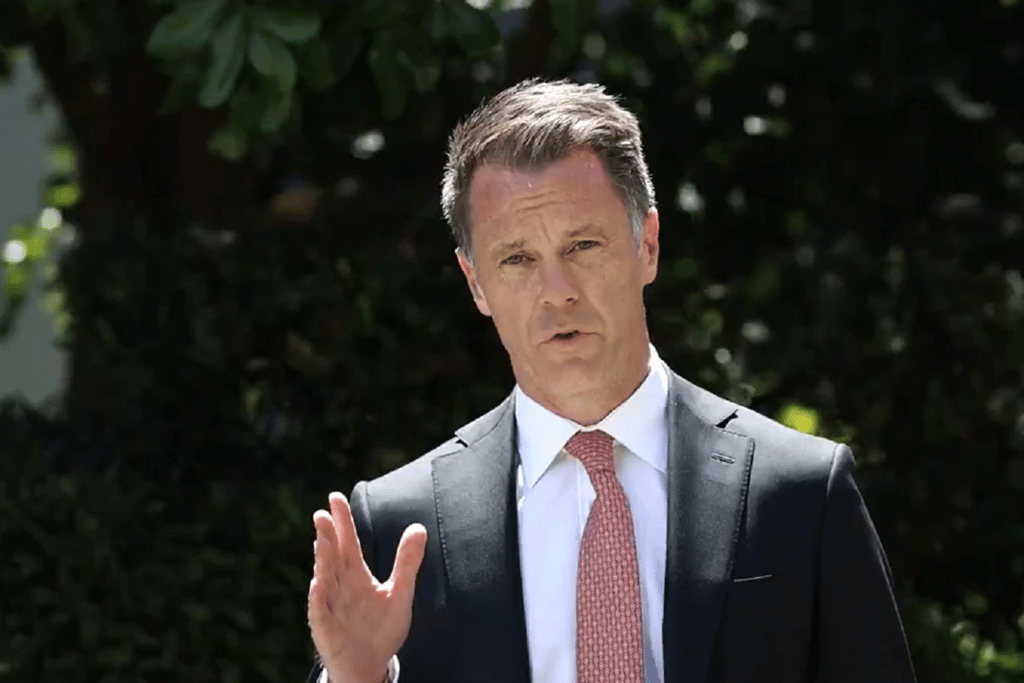The NSW government has launched the state’s first primary prevention strategy for family, domestic and sexual violence in NSW.
The $38.3 million strategy, called Pathways to Prevention: NSW Strategy for the Prevention of Domestic, Family and Sexual Violence 2024-2027, aims to tackle the underlying beliefs and cultures that permit the use of violence against women and children.
The Minns government worked with more than 200 stakeholders, including organisations like Domestic Violence NSW and Our Watch, to develop the strategy that highlights three main priorities for the government.
Premier Chris Minns said the state has “a long road ahead of us” in terms of progress to ending gender-based violence but the Pathways to Prevention strategy is an “important step”.
“We need to invest in this work now, to help prevent more lives being ended or ruined in years or even decades to come,” the Premier said.
“This framework will be the foundation of our efforts to not just respond to violence once it has occurred, but to stop it before it starts.”
Jodie Harrison, the Minister for the Prevention of Domestic Violence and Sexual Assault, said “for too long” the government’s approach has focused on early intervention, crisis response and recovery, failing to make genuine change in the primary prevention space.
“The Pathways to Prevention strategy provides a holistic approach to stop violence before it starts and complements ongoing initiatives which support victim-survivors and ensure perpetrators are held to account,” Minister Harrison said.
“We all have the right to be safe and respected and to live a life free of domestic, family and sexual violence.”
What are the priorities of the strategy?
The first of the three priorities within the strategy is progressing prevention in priority settings: local communities, schools, workplace and sporting clubs.
Part of the Pathways to Prevention strategy includes an $8.8 million expansion to the All-In project that empoewrs early childhood workers and families of young children to challenge gender stereotypes that ultimately drive violence against women.
Deputy Premier and Minister for Education and Early Learning Prue Car said starting primary prevention with young people has an “incredible impact on the people they group up to become”.
“When you teach a child respect and resilience at an early age, and build their self-esteem, it becomes a part of the fabric of who they are. They grow up knowing what healthy, respectful and equal relationships look like,” the Deputy Premier said.
“Education is one of the most powerful tools we have to change behaviours and attitudes, leading to a positive society where women and children are able to live in a safer New South Wales.”
The second priority of the strategy is supporting Aboriginal-led prevention. In Australia, Aboriginal and Torres Strait Islander women are 31 times more likely to be hospitalised as a result of family and domestic violence, and eight times more likely to be murdered by a former or current intimate partner.
The Pathways to Prevention strategy involves focusing on working with Aboriginal and Torres Strait Islander stakeholders on co-design initiatives centring First Nations peoples’ priorities, strengths and knowledge. The government are also in the process of developing a dedicated NSW Aboriginal Domestic and Family Violence Plan, with a draft expected in 2025.
The NSW Minister for Aboriginal Affairs and Treaty David Harris said while family and domestic violence “does not discriminate”, Indigenous communities are disproportionately affected.
“Closing the Gap is a top priority of the NSW Government and we cannot and will not take a one size fits all approach in this space,” Minister Harris said.
“The priorities, views and knowledge of Aboriginal communities will be central as the New South Wales Government continues work in this space.”
Finally, the third priority is to provide centralised support to the prevention of family, domestic and sexual violence. The NSW government said it would establish a Primary Prevention Advisory Council to manage the strategy and its implementation.
‘A great sense of hope’
NSW Women’s Safety Commissioner Dr Hannah Tonkin said the government’s plan is a “critical step” to going beyond responding to a crisis, and actively disrupting the drivers of violence.
“Eliminating domestic, family and sexual violence is a complex challenge which requires concerted effort from all levels of government, advocates, frontline workers and the broader community,” Dr Tonkin said.
Delia Donovan, CEO of Domestic Violence NSW, welcomes the government’s plan with “a great sense of hope”.
“Incredible prevention work is already happening led by local communities,” Donovan said, “and we look forward to these initiatives receiving recognition and sustainable resourcing via the strategy and the funding that has been committed by the NSW government.”
Karen Bevan CEO of Full Stop Australia, also welcomed the strategy, particularly its focus on sexual violence and the attitudes that underpin its prevalence.
“It will take every community and all of us to make the change we need to end sexual, domestic and family violence in NSW,” Bevan said.
“We encourage the NSW government to continue its efforts to end sexual, domestic and family violence in the state.”


